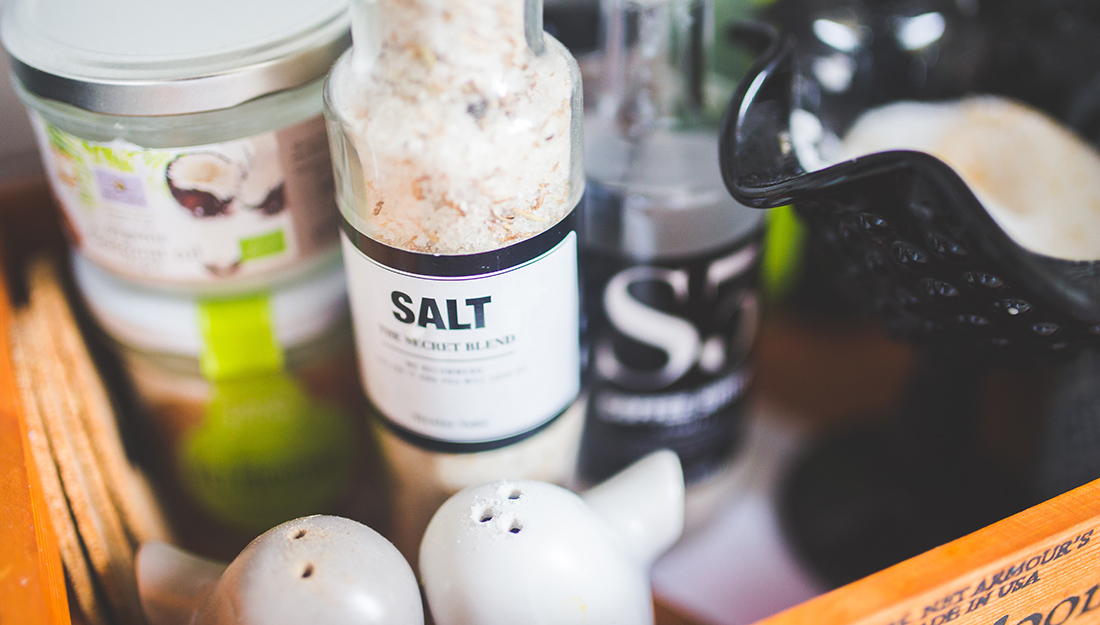- Nicole Bender
- Medicine, Show on VR homepage, You Asked
You Asked: What happens to your body when you eat too much salt?
The kidneys are key, and when they struggle, the body struggles

Did you know the word “salary” stems from salt and its storied use throughout human history, dating as far back as 6050 BC? It has also been a part of the American diet since, well, the beginning of America. Pre-industrial revolution, before refrigeration was available, salt was used to preserve meats and other foods for longer periods of time. Today, it still serves as a preservative, particularly in processed canned and boxed goods, but it is also often used for additional flavor. It is commonplace to add salt to virtually everything—meat, potatoes, vegetables and even watermelon.
In small doses, there is nothing wrong with a little salt. “The body does need sodium,” said Claudia Perkins, registered dietician for the Diabetes Education Program at the Texas A&M Coastal Bend Health Education Center. “It helps to maintain fluids balance within the body, transmits nerve impulses and controls the contraction and relaxation of the muscles.”
Still, on the whole, we eat way too much of it. The average American consumes about 3,400 milligrams (mg) of sodium each day. To put that into perspective, a teaspoon of table salt, which consists of sodium and chloride, has about 2,325 mg of sodium. The Dietary Guidelines for Americans recommends a maximum of 2,300 mg per day, which most of us are clearly exceeding. An appeals court recently sided with New York City’s mandate for restaurants to use salt-shaker-like emblems to designate menu items that contain more than a day’s recommended amount of sodium.
“To avoid excessive sodium intake, avoid cooking with salt,” Perkins said. “Use herbs and spices to incorporate more flavor into the dishes you are preparing.” Still, for most of us, it is not the salt we add ourselves that is the primary problem. Processed foods satisfy many of our cravings and often seem like the most convenient meal option, but they also are the primary source of sodium consumption. Avoid overindulging on breads, cold cut meats, pizzas, broths, frozen entrees, fried foods, chips, snack foods and canned soups, meats and vegetables.
What happens when you overindulge may be surprising. “When the kidneys are unable to excrete excess sodium, it can build up,” Perkins said. “If too much builds up, our body reacts.” So what happens when we go overboard with the saltshaker?
Kidneys won’t filter
The kidneys serve to filter blood. This filtration process involves regulating the amount of water to retain within the blood stream or release as urine. Too much sodium could make it difficult for the kidneys to effectively expel fluid waste, thus causing the body to retain more water. High-sodium diets can also increase the amount of urinary calcium, which is the main cause of kidney stones.
You bloat
When the kidneys retain water, your body is likely to bloat. Such swelling is called edema, and it can occur in your face, hands, ankles or legs. It is not a serious condition; however, it can be uncomfortable and make clothes feel too tight. Drinking water and not eating high-sodium foods can help the swelling subside.
You become dehydrated
When too much sodium throws the body and the kidneys out of whack, the body becomes dehydrated. During this period, the body will pull water from your cells. Drinking more water will help neutralize the sodium and rehydrate the cells throughout your body. If you are feeling thirsty or nauseated or have diarrhea or stomach cramps, too much sodium could be the culprit. Drink more water!
Blood pressure increases
When the body retains water, it will cause an increase in blood volume. More blood volume will make it more difficult for the blood to move through the arteries, ultimately increasing blood pressure and affecting the heart. Increased blood pressure can lead to elevated risk of heart disease, stroke, congestive heart failure and kidney disease.
Sodium is important for bodily functions, but too much for too long can lead to chronic issues. It is important to be cognizant of your sodium intake and to not regularly exceed the 2,300 mg per day. By tracking your meals’ nutrients and working with your health care provider, you can take steps limit your sodium consumption and improve your health.
Media contact: media@tamu.edu


